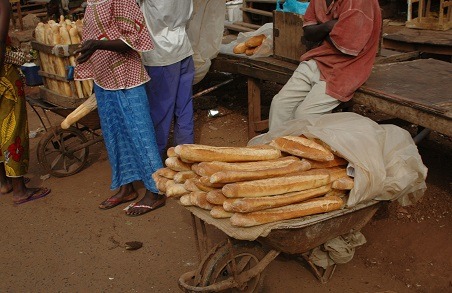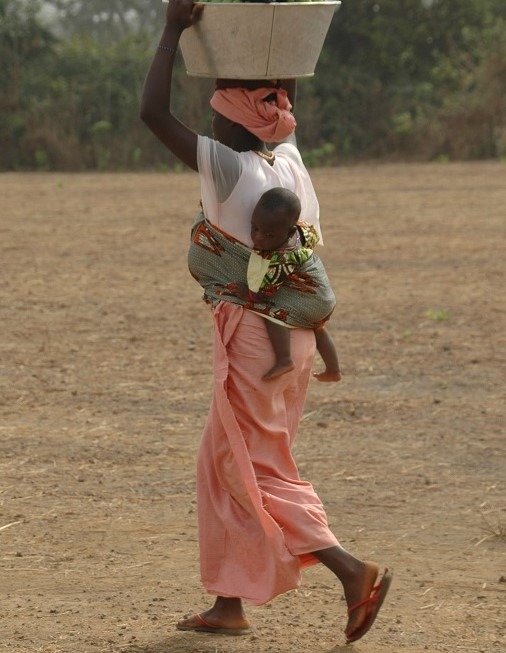Learning to Say Yes
Learning another language is harder than you think.
WRITING ABOUT AFRICALANGUAGE LEARNING
Daniel Dore
3/9/2024


Learning to Say Yes
During our first months in Africa, we had to study the French language. It was humiliating to start off as a child, not knowing anything that was going on in conversations around us. (Added to this was the presence of various local dialects being spoken as well.) I was thankful for those who were patient enough to help out. And put out with those who were impatient with our early attempts to communicate.
Fortunately, our French lessons were dialogue-based, so we could at least speak quite well about certain topics. Once we were out of the confines of those topics, we were lost. For instance, at the market we learned to ask, “Do you have any onions?” To which we could add, “Do you have any carrots?” Then add, “How much do they cost?” Then, “That’s too expensive.” Or, “That’s good, I’ll take three.”
When asked, “What part of town do you live in?” I would just stare in silence, not knowing what I was being asked, nor how to respond. I would say, “Thank you, see you tomorrow” and quickly move to another part of the market. Only to start over with another vendor, “Do you have any onions?”
One day I was asked a question and responded with my typical blank stare. The question was repeated, with a point of the finger, down, toward my feet. He then pointed to his chest. After several attempts, the young man said, in broken English, “Give me your socks.” Now I understood, but my silence continued, still not knowing what to say.
Later, I was told to just say “No.” Learning to say no was difficult for me. “You’ll soon be taken advantage of if you say anything but no.” A stammering answer of, “Well, I’ll think about it” just meant yes, I soon learned. You cannot open the door one inch. Anything but a firm no will lead to more persistence on the part of the one who needs what you have plenty of.
I have been asked to give away my shoes, socks, shirt, hat, bicycle, radio, even one of my daughters in marriage. Apparently the Biblical reproach, “You have not because you ask not” is not needed here in my new surroundings.
So I learned to say no. And it hurt. I did not like it. But I did like my Boston Red Sox hat, and if I gave it away my forehead would get sunburned. “But you have more at home” I would be reminded. If I said no I don’t, the next line was, “But you have money, you can buy another one, I don’t.” How do I answer that? It’s true. That is why you must stop the dialogue with a simple no. Or so I was told.
As my language proficiency improved, it was not so awkward walking around town, meeting people, buying things at the market, asking questions, learning things. Then one day, I learned a lesson I will never forget.
I was walking down the hill from our rental house to the bakery. We bought a fresh loaf of French bread each morning. The smell of fresh-baked bread wafted up the hill to our house. Before the son of the baker could load his wheelbarrow and transport the loaves to the market for sale, I would arrive to make my purchase. Hot and fresh and delicious, not dusty and dried out from being in the sun all day on the roadside by the market. I was planning to bring a loaf home, butter it, eat it with some eggs and a cup of hot coffee. Then I saw her. Walking up the hill toward me, with a baby on her back.
“Give me 100 francs for a loaf of bread” she said, in French. “No” I said. We cannot foster dependency, right? Or what if she used it for something else, like cigarettes? Or what if I was accused of giving a gift to an African woman, for my own intentions? All these reasons, and many more, had convinced me that the advice given, just say no, was valid. So I always tried, without thinking too much, to just say no, and move on.
“My husband is in jail, and we need bread.” Now what to do? Is this a scam? I saw the look on those eyes. Pleading. I could not bring myself to say no. I just shook my head and moved on. She said, “D’accord.” Meaning “Okay” and sadly continued up the hill. It was those sad eyes that haunted me as I continued down the hill toward the bakery.
I bought two loaves, hoping to see her as I made my way back up the hill. She was gone. No chance to redeem the opportunity to give a loaf of bread to someone in need. But those sad eyes still haunt me, yes, even 30 years later, as I write this.
I had thought that learning to say no was difficult. Now I see that learning to say yes is harder. Once you learn to say no, knowing when and how to say yes are the real questions. Mistakes are made. Regrets are hard to live with. I repent. Then I read Jesus’ words, and everything seems so uncomplicated.
“For I was hungry, and you gave me something to eat; I was thirsty, and you gave me something to drink; I was a stranger, and you invited me in; naked, and you clothed me; I was sick, and you visited me; I was in prison, and you came to me.” (Matthew 25:35-36.)
Eventually, I learned to ask my African neighbors questions about such cultural conundrums. In the next post I will write about an African friend who told me what to say when someone says, “Give me your shirt.” What do you think his advice was?





